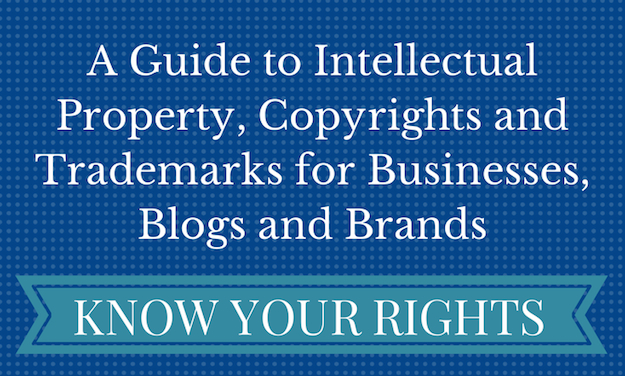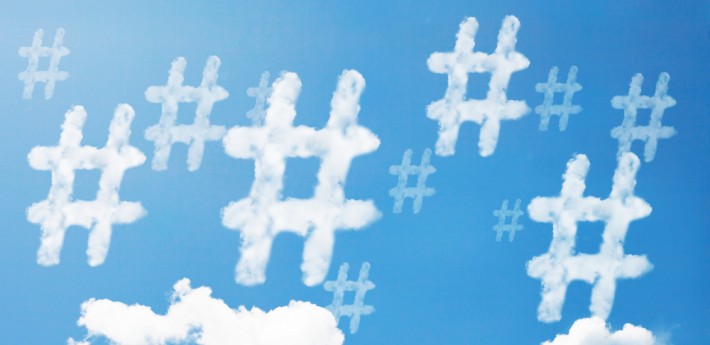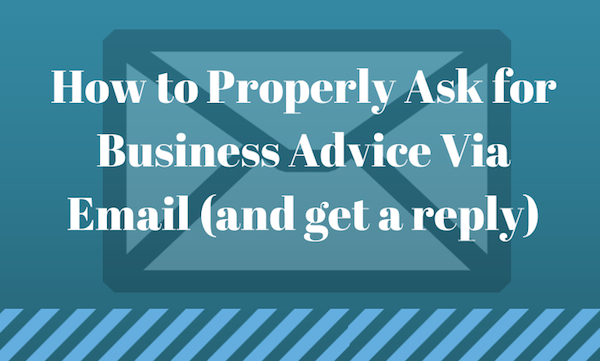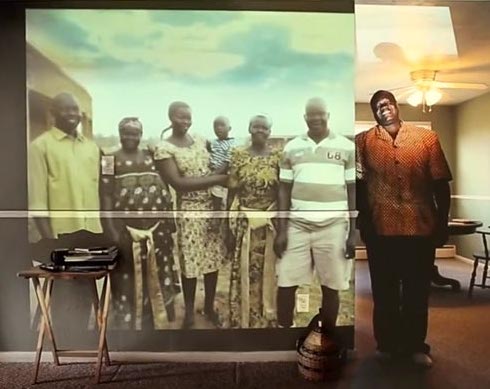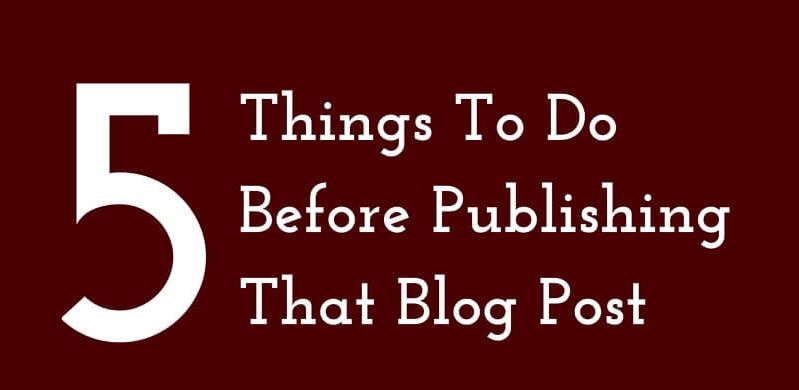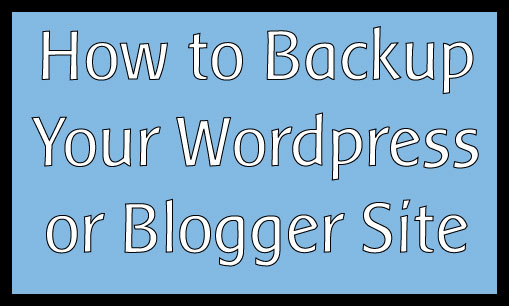What to Do When Your Creative Work Gets Stolen
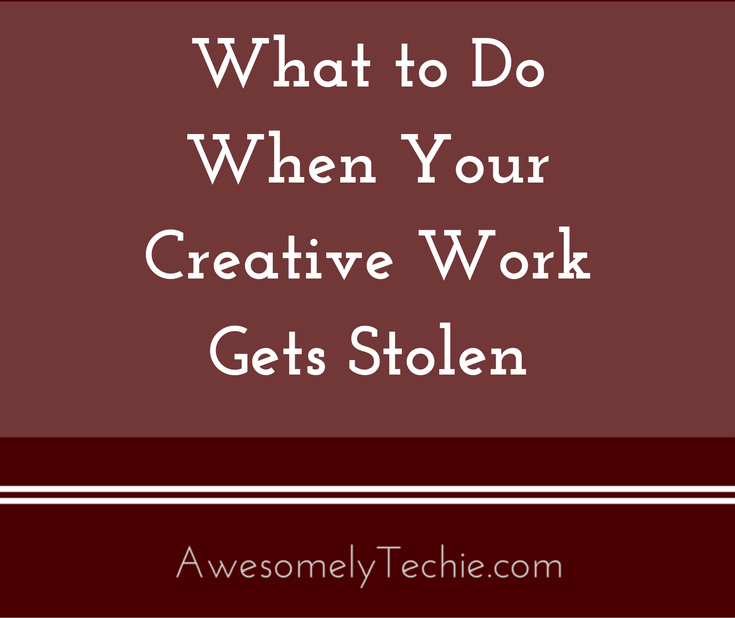
Some people say “imitation is the best form of flattery”. I’ve never been flattered when someone has copied me, especially when it’s something I worked so hard for. Stealing creative work is nothing new; it’s been happening literally since the beginning of time.
The curse of having social media is that while it’s easy to share your work, it’s also easy to share it with the wrong people. Lately, there has been an influx of creatives who have had their artistic work stolen, only for a large Facebook page to turn around and resell their work.
The page, which will rename nameless but is not hard to find, continues to find designs that they know will sell, and slap them on tshirts and hoodies to sell. Many of the artists are unaware this is happening, but others have a community who notifies them and are ready for action.

I spoke with entrepreneur and creative Arsha Jones, who owns a clothing and lifestyle brand called Tees in the Trap that constantly gets copied. She gave some great insight:
Until we they take this seriously, they’ll keep doing it. In the past when this has happened to me, I’ve filed reports. Each sites’ rules are different but they will all have a legal department.
I filed 4 complaints last week on Etsy sellers and the products were removed within hours. It’s a lot to keep up with but in this case the young lady was running ads for my shirt. So I had to do something.
Artists have the law on their side but won’t use it. Mobilizing followers to comment and report pages unfortunately does not work. Business owners need to stop seeking social justice and start asserting their rights.
This was news to me, as I always thought the reporting action would be beneficial. But once I saw that our “reporting campaigns” so to speak were not hurting the page in the slightest, I went to a lawyer to find out what artists can do when their work gets stolen.
Patrice Perkins is the Principal Attorney of Creative Genius Law, a business and intellectual property law firm for creative entrepreneurs. She has an amazing (and free!) masterclass called Protect Your Brand in Cyberspace, which shares a 5 step system to protecting your intellectual property until you stack enough coins to hire a lawyer.
Patrice was kind enough to answer a few questions we had about fighting back legally when this happens to you:
Awesomely Techie: Can you describe what copyright is? Is your work (written words, designs, etc.) automatically copyright protected?
Patrice Perkins: Copyright law protects expressions of ideas in very specific categories. These categories are: literary works; musical works, including any accompanying words; dramatic works, including any accompanying music; pantomimes and choreographic works; pictorial, graphic, and sculptural works; motion pictures and other audiovisual works; sound recordings; and architectural works. It does not protect facts.
When you “own the copyright” in something it means that you own a bundle of five rights. Those rights include the right to: Reproduce your work; distribute or sell your work; grant a license for others to distribute or sell your work; modify your original work, or create a derivative (a work based on an original i.e. a short film based on a poem); perform or display the copyrighted work. Copyright ownership kicks in as soon as you create and publish an original work (these “expressions of ideas” that I referred to earlier). There are important benefits to registering your work with the U.S. Copyright Office.
AT: What’s the difference between copyright & trademark?
PP: Copyright protects your work as a form of art. Trademark protects it as an important part of your brand that identifies your products or services. I’ll break that down further. Let’s say an artist has a painting of their interpretation of a phoenix. Copyright law would protect that as a work of art, no matter how it’s used. If this phoenix were also the artist’s logo then trademark law would kick in and it would be tied to the specific thing that the artist sells or the service she provides. A copyright last for the artist’s life plus 70 years while the trademark is renewed every 10 years. Even though the protection (and ownership) is longer, both trademark and copyright work hand in hand.
AT: Should someone trademark their designs before launching a product with it (such as a tshirt, mug, notebook)?
PP: Not necessarily. They would definitely want to register the copyright first. Keep in mind, they can only register the copyright if they were the actual creator or if the ownership was legally transferred to them. Those designs can only be protected under trademark law if they are also used as logos. T-shirt and products are often rejected for trademarks if the USPTO finds that they were used in a way that’s “merely ornamental.” In other words, if the use of the design on the t-shirt or product is primarily aesthetic it won’t be successfully registered, or it will only be approved for the supplemental register.
A supplemental registration has incredibly limited protections and should only be a last resort. This is one of the reasons why it’s essential to work with an experienced trademark attorney because depending on the circumstances we know how to advise you and can present arguments that will get a t-shirt or product trademark application registered with maximum protection. It’s not about just getting the paper pushed through with USPTO, it’s about actually registering in a way that gives you real protection and ownership.
AT: What do you think about watermarking photos? What are the pros and cons?
PP: I’m a fan of watermarking copyright photos because I think it can strengthen a copyright infringement claim if you ever need to sue. Copyright law dictates that if you’re registered with the U.S. Copyright Office and someone infringes on your work you can get between $750-$35,000 in damages from the court for each instance of infringement (depending on the facts). Where there is “willful infringement” that amount can go up to a max of $150,000.
Willful infringement is when someone egregiously and knowingly jacked your shit. I think something as simple as watermarking moves a case closer to being willful infringement if someone purposely removes your watermark and even adds their own. Even if you don’t sue, that simple moves gives you more leverage in negotiating a settlement.
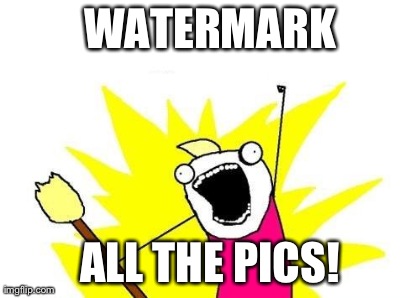
AT: If someone steals your design and begins profiting from it, what are the immediate actions you should take?
PP: Please contact a lawyer immediately. Seriously. Your hunch is going to be to demand that they pull it down but you know how larger companies slap indie creators with cease and desists for using their photos without permission? And, how indie creators usually have to pay a fee in addition to puling the photos down? Well, you have that same right. A lawyer can advise you if it’s worth negotiating a settlement fee, what that fee should be based on the circumstances and can help make it happen. Depending on the scenario, I may recommend that you make the initial contact on your own but can give feedback on what to say. There’s strategy behind that (I can’t spill all the beans online in case opposing counsel stumble on this post *wink*).
AT: How do social networks handling copyright infringement? For example, are you able to get a Facebook ad approved by copying someone’s work?
PP: One acronym. DMCA. You can file a DMCA takedown notice if you are certain someone stole your work and is sharing it on social media networks. They’ll review your claim pretty quickly and pull it down, then they’ll give the other person a chance to respond. You’ll need to be able to show that the work is your original… screenshots of when you originally posted your work will help.
AT: Do designers and creatives have a tougher time with copyright than say writers and bloggers?
PP: I don’t think so…

AT: Is there a way to prevent your work from being stolen? (Obviously not, but maybe there are ways to be proactive)
PP: There’s no 100%, perfect solution but you can reduce the risk of someone stealing your work. Also, as an owner of intellectual property you have an active duty to protect it. I also like to look at it as preserving your legacy. I give quite a few tips and even more intel on this in my free Protect Your Brand in Cyberspace Masterclass.
Arsha made one last point clear: “Those groups you all are in. You know. The ones where you drop your links for promotion? They’re in there. Waiting and watching.” These are not complete strangers doing this. Be mindful who you share your work with.
When folks hear that you’re taking legal action against them, they absolutely get shook. But you have to be ready to really follow through. Big pages like the one that is stealing so many artists work may have the upper hand in your mind because they have so many likes and followers. However, you have the real power in your hand.
Also read: A Guide to Intellectual Property, Copyrights and Trademarks for Businesses, Blogs and Brands

